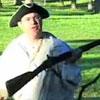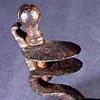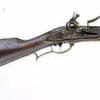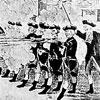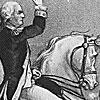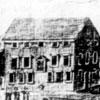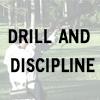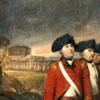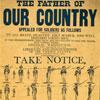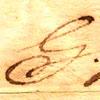Standing exposed amidst the hail of bullets required a supreme kind of restraint, an ability to suppress one’s own instincts for self-preservation long enough to load and fire a musket. Armies of the 18th century relied on a system of drill and discipline in an attempt to create soldiers who would follow orders without question and who could stifle the natural powerful urge to flee.
In Europe, professional armies practiced marching together, and trained in the manual of arms—the set of manipulations that guided a soldier through loading and firing the musket. The goal was to habituate soldiers to perform these routines without thinking, both so that they could fire their volleys in perfect concert and so that they would not stop in the midst of battle and reconsider their commitment to fighting.
The necessity of keeping men in the firing line against powerful and sometimes overwhelming instincts led many military professionals of the era to conclude that to become an effective soldier, a man must first be converted into a kind of automaton.
George Washington’s orders given at “Head Quarters, Cambridge, July 4, 1775” show that he too was concerned about creating a disciplined army:
The Continental Congress having now taken all the Troops of the several Colonies, which have been raised, or which may be hereafter raised for the support and defence of the Liberties of America; into their Pay and Service. They are now the Troops of the UNITED PROVINCES of North America; and it is hoped that all Distinctions of Colonies will be laid aside; so that one and the same Spirit may animate the whole, and the only Contest be, who shall render, on this great and trying occasion, the most essential service to the Great and common cause in which we are all engaged.
It is required and expected that exact discipline be observed, and due Subordination prevail thro' the whole Army, as a Failure in these most essential points must necessarily produce extreme Hazard, Disorder and Confusion; and end in shameful disappointment and disgrace.
The General most earnestly requires, and expects, a due observance of those articles of war, established for the Government of the army, which forbid profane cursing, swearing and drunkeness; And in like manner requires and expects, of all Officers, and Soldiers, not engaged on actual duty, a punctual attendance on divine Service, to implore the blessings of heaven upon the means used for our safety and defence.
Source:
John Fitzpatrick (editor), “George Washington, July 4, 1775, General Orders,” The George Washington Papers at the Library of Congress 1741-1799 (accessed September 6, 2012).


